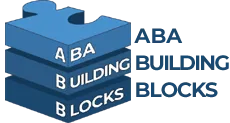The landscape of autism behavior intervention is multifaceted, requiring a delicate blend of expertise, empathy, and precision. At the heart of this complex journey lies the pivotal role of consulting. In the realm of autism spectrum disorder (ASD), consulting serves as a guiding compass, navigating parents, educators, and therapists through the nuanced challenges and triumphs of behavior intervention.
As we delve into the significance of consulting in the success of autism behavior intervention, we uncover the intricate web of support, knowledge, and collaboration that propels positive outcomes for individuals on the autism spectrum.
Understanding Autism Behavior Intervention
Autism behavior intervention is a comprehensive approach aimed at enhancing the quality of life for individuals with autism spectrum disorder. The spectrum, characterized by a diverse range of strengths and challenges, necessitates personalized strategies tailored to each individual’s unique needs.
Behavior intervention addresses various aspects, including communication, social skills, sensory processing, and adaptive behaviors. However, navigating this intricate terrain requires more than a standardized approach; it demands a deep understanding of the individual’s specific challenges and strengths.
The Role of Consulting in Autism Behavior Intervention
Consulting emerges as a linchpin in the effectiveness of autism behavior intervention. Rather than a mere auxiliary element, consulting becomes the cornerstone that connects and fortifies the efforts of parents, educators, therapists, and other stakeholders involved in the individual’s journey. Here’s an exploration of the key facets that elucidate the indispensable role of consulting in autism behavior intervention.
-
Individualized Assessment and Planning
Consulting brings forth a wealth of experience and expertise in the realm of autism. One of its primary roles is to conduct comprehensive assessments to gain insights into the individual’s unique profile, strengths, and challenges. These assessments serve as the foundation for tailored intervention plans. By leveraging a deep understanding of autism, consultants can identify triggers, preferences, and potential areas of growth. This individualized approach ensures that interventions are not only effective but also attuned to the specific needs of the individual.
-
Collaboration and Communication
Successful autism behavior intervention is a collaborative endeavor that involves a network of individuals – parents, teachers, therapists, and other professionals. Consulting acts as a bridge, fostering effective communication and collaboration among these stakeholders. Regular consultations provide a platform for sharing observations, discussing progress, and refining strategies. This collaborative approach ensures a unified front, where everyone involved is equipped with the knowledge and tools needed to support the individual consistently across different settings.
-
Professional Development and Training
In the ever-evolving field of autism intervention, staying abreast of the latest research, techniques, and best practices is paramount. Consultants play a crucial role in the ongoing professional development of parents, educators, and therapists. Through training sessions, workshops, and resources, consultants empower the support network with the knowledge and skills necessary to implement effective interventions. This proactive approach not only enhances the quality of care but also instills a sense of confidence and competence among those directly involved in the individual’s life.
-
Adaptability and Flexibility
The nature of autism is dynamic, with individuals often presenting shifting patterns of behaviors and responses. Consulting equips the intervention team with the ability to adapt and flexibly modify strategies based on the individual’s progress and evolving needs. This adaptability is essential for the long-term success of interventions, ensuring that the approach remains relevant and responsive to the individual’s developmental trajectory.
-
Empowering Families
Families of individuals with autism often face unique challenges that extend beyond the immediate intervention settings. Consulting recognizes the pivotal role of families in the overall well-being of individuals with autism. By providing guidance, resources, and emotional support, consultants empower families to navigate the complexities of daily life. This holistic approach acknowledges the interconnectedness of the individual within their familial context, fostering a supportive environment that nurtures growth and development.
-
Advocacy and System Navigation
Navigating the various systems and services available for individuals with autism can be daunting. Consultants serve as advocates, assisting families in accessing appropriate resources and services. This advocacy extends beyond the immediate intervention plan, encompassing educational support, community services, and other essential elements of a well-rounded support system. By navigating these systems, consultants contribute to the creation of an inclusive and supportive environment for individuals with autism.
-
Data-Driven Decision-Making
Consulting introduces a data-driven approach to autism behavior intervention. By systematically collecting and analyzing data, consultants and the intervention team can gauge the effectiveness of strategies and make informed adjustments. This evidence-based approach enhances the precision and efficacy of interventions, ensuring that the chosen strategies align with the individual’s goals and measurable outcomes.
Challenges in Consulting for Autism Behavior Intervention
While consulting plays a pivotal role in the success of autism behavior intervention, it is essential to acknowledge the challenges inherent in this process. Some of the key challenges include:
- Limited Access to Consulting Services: Not all individuals with autism and their families have access to specialized consulting services, particularly in underserved communities. Addressing this disparity requires concerted efforts to expand resources and increase accessibility.
- Stigma and Misconceptions: Stigma and misconceptions surrounding autism can hinder the effectiveness of consulting. Consultants may encounter resistance from individuals or communities that hold outdated beliefs about autism, necessitating advocacy efforts to promote understanding and acceptance.
- Continuity of Care: Ensuring continuity of care across various settings can be challenging. Changes in educational or therapeutic environments may disrupt the consistency of behavior intervention strategies, underscoring the need for effective communication and coordination among all stakeholders.
Conclusion
In the intricate tapestry of autism behavior intervention, consulting emerges as a guiding force, weaving together the threads of expertise, collaboration, and adaptability. The success of interventions hinges not only on the application of evidence-based strategies but also on the ability to tailor these strategies to the unique needs of the individual.
As we recognize the multifaceted role of consulting, we pave the way for a more inclusive and supportive environment that fosters the growth, development, and well-being of individuals on the autism spectrum. In the collective efforts of consultants, families, educators, and therapists, we find the promise of a brighter future for those navigating the unique journey of autism.






